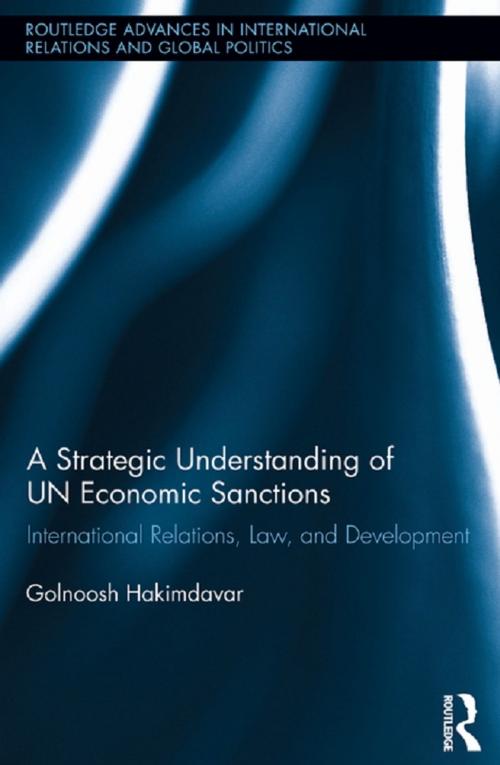A Strategic Understanding of UN Economic Sanctions
International Relations, Law and Development
Nonfiction, Social & Cultural Studies, Political Science, International, Treaties, International Relations| Author: | Golnoosh Hakimdavar | ISBN: | 9781136270598 |
| Publisher: | Taylor and Francis | Publication: | October 8, 2013 |
| Imprint: | Routledge | Language: | English |
| Author: | Golnoosh Hakimdavar |
| ISBN: | 9781136270598 |
| Publisher: | Taylor and Francis |
| Publication: | October 8, 2013 |
| Imprint: | Routledge |
| Language: | English |
Economic Sanctions are increasingly used as a legal, non-military technique of combating abusers of international peace. However it remains unclear how the success or failure of these sanctions is measured. This book examines the seldom-explored United Nations’ economic sanctions deliberation process and exposes systematic problems in the measurement of the success or failure of these sanctions. Centering on the key concepts of "peace and security," the author brings the reader’s attention to the discrepancies that exist in the process of decision-making, implementation, and evaluation of UN imposed economic sanctions. She engages international law and development methods to provide proof for the lack of consensus in measures of success and failure, which in turn suggests that sanction implementation on a uniform domestic front are unattainable. This thorough analysis concludes with suggestions for improving the sanctions process, only to clear the path for negating them as a whole and suggest alternative non-coercive measures for mitigating conflict situations and threats to peace and security.
Economic Sanctions are increasingly used as a legal, non-military technique of combating abusers of international peace. However it remains unclear how the success or failure of these sanctions is measured. This book examines the seldom-explored United Nations’ economic sanctions deliberation process and exposes systematic problems in the measurement of the success or failure of these sanctions. Centering on the key concepts of "peace and security," the author brings the reader’s attention to the discrepancies that exist in the process of decision-making, implementation, and evaluation of UN imposed economic sanctions. She engages international law and development methods to provide proof for the lack of consensus in measures of success and failure, which in turn suggests that sanction implementation on a uniform domestic front are unattainable. This thorough analysis concludes with suggestions for improving the sanctions process, only to clear the path for negating them as a whole and suggest alternative non-coercive measures for mitigating conflict situations and threats to peace and security.















